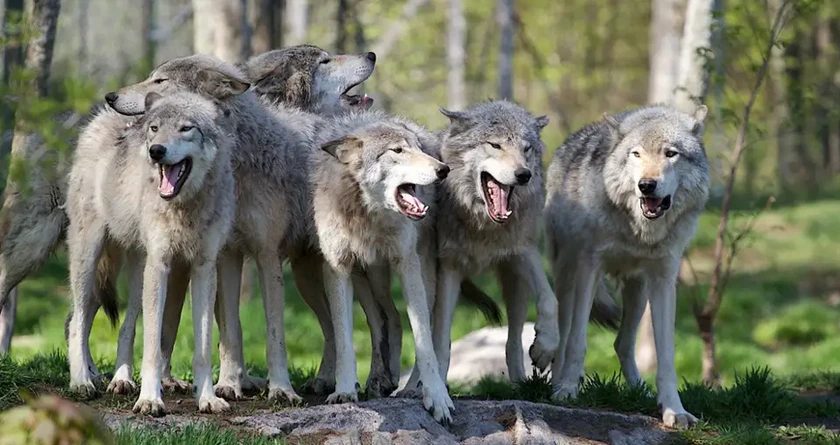
How Similar Are ‘Domesticated’ Wolves and Dogs? Can They Be Kept as Pets?
How Similar Are ‘Domesticated’ Wolves and Dogs? Can They Be Kept as Pets?
Friday, 24th September 2021
Wolves and dogs are two species that may exhibit minor overlapping ancestral behaviours, but are largely distinct in their characteristics.
According to research, when humans raise wolf pups the animals display dog-like attachment for their owners and comfort around human strangers. However, that is about where the similarities end and it is important to remember that wolves are by no means dogs and do not naturally belong to human environments.
Although they may share some similarity in looks, dogs’ brain scans suggest they are inherently happier around humans than members of their own species. They can thus be easily domesticated, but wolves by nature are wary of a human presence and are even repelled by it. They are fiercely independent even at a very young age and unlike dogs do not look for support from other quarters.
Having said that, scientists have pointed out some similarities between the two species like licking each-others’ faces while greeting and also comprehending finger gestures.
A study was conducted to gauge the behavioural pattern of wolves when socialized to humans and their relationships with their human caretakers. The primary aim of the research was to see if a dog’s affinity towards their human masters was present in ancestral wolves, where they originated or it is simply a result of domestication.
The researcher Ujfalussy explains, “while dogs may be more attached to their human caretaker in the sense of dependence and using their owners as a secure base, wolves are also able to form lasting affiliative relationships with their caretakers, though without a sense of dependence.”
Ujfalussy’s team conducted their experiments with wolf puppies who were raised just like dogs by humans.
Also Read: In India, there are 31,923 new COVID-19 cases, up 18% from yesterday.
Two experiments were conducted where wolf puppies were put through a greeting test around their immediate caregivers, close acquaintances, people they’ve met only once before, and complete strangers.
In the first experiment, eight wolves were exposed to visitors when in the company of other wolves, but for the second experiment, nine wolf puppies had to go it alone.
While the pups were more confident when in the company of other members of their species in the first experiment, they were more self-assured in the second as the members here were a little older.
In both cases, the wolves greeted their visitors (with controlled measures) readily and with affection. Researchers concluded, “wolf pups do seem to form attachments and that while they are not dependent upon their caretakers later in life a social bond does seem to persist into adulthood.”
However, despite their show of amicable behaviour, experts state, “tame wolves kept as pets are a real danger to their environment and to themselves.”
The News Talkie Bureau
Source-
Gizmodo











